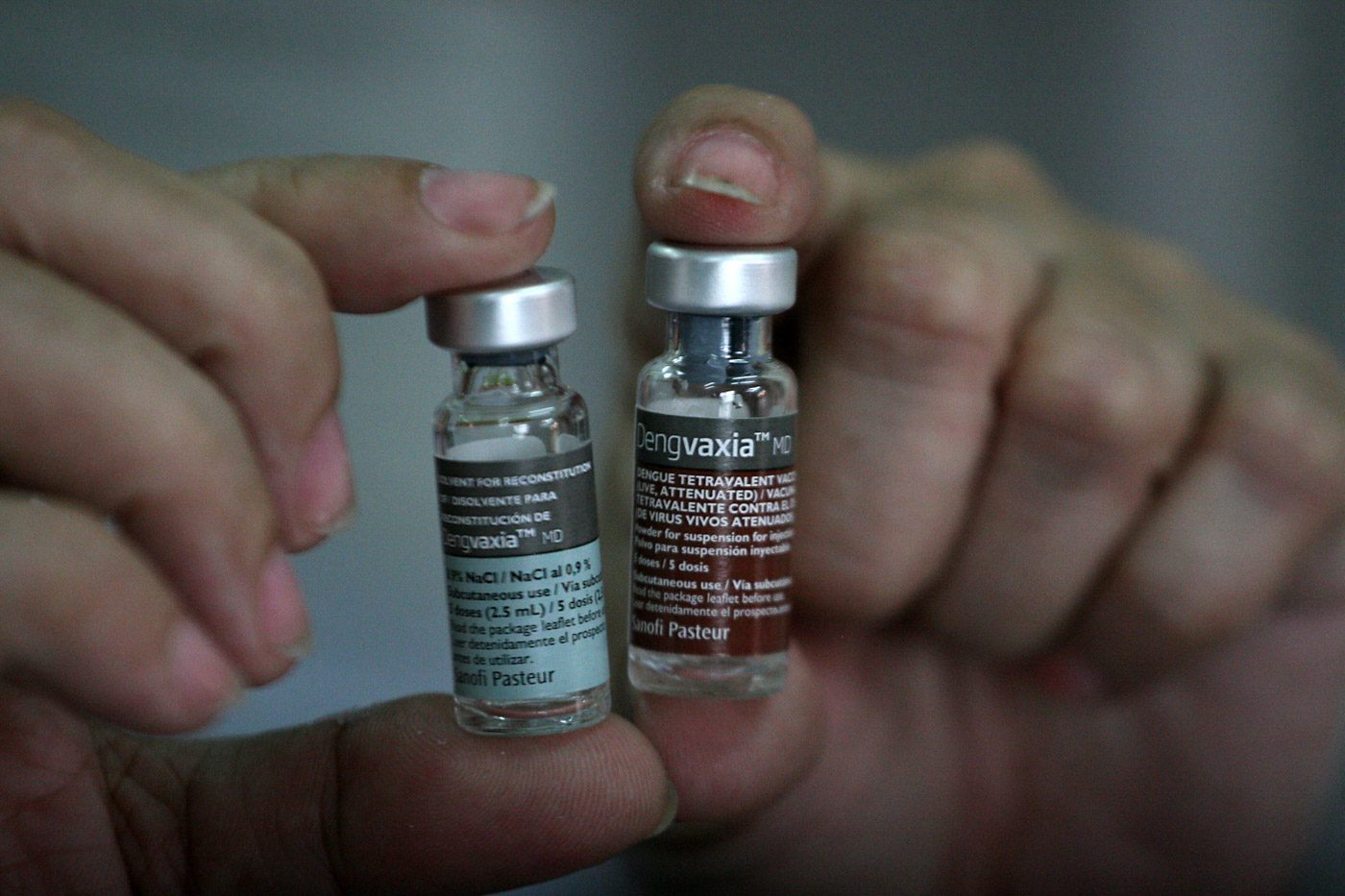SUMMARY
This is AI generated summarization, which may have errors. For context, always refer to the full article.

MANILA, Philippines – French pharmaceutical giant Sanofi Pasteur agreed to refund the P1.4 billion that the Philippine government is demanding for the unused Dengvaxia dengue vaccine vials in the country.
Sanofi announced this on Monday, January 15, after Department of Health (DOH) Secretary Francisco Duque III wrote demand letters asking for a refund and for the company to provide free serotesting of 873,000 children who got the vaccine.
“Sanofi Pasteur has responded positively to the Philippine Department of Health’s request that we provide reimbursement for the doses of Dengvaxia that were not used by the government in the public vaccination program,” said Sanofi.
The pharmaceutical company, however, said its decision is “not related to any safety or quality issue with Dengvaxia.”
“Rather, Sanofi Pasteur hopes that this decision will allow us to be able to work more openly and constructively with the DOH to address the negative tone towards the dengue vaccine in the Philippines today,” said Sanofi.
According to the company, the DOH’s demand for a refund was just “due to a misunderstanding.”
“Sanofi Pasteur strongly believes that this tone is due to a misunderstanding of the benefits and risks associated with the dengue vaccine and a lack of awareness amongst the general public, particularly parents of vaccinated children, that the overall benefit of dengue vaccination remains positive in high endemic countries like the Philippines,” said Sanofi.
The DOH, under the Aquino administration, used Dengvaxia for its mass immunization program for public school students aged 9 and above in Metro Manila, Central Luzon, and Calabarzon in April 2016. (READ: TIMELINE: Dengue immunization program for public school students)
Public health experts sounded the alarm that the mass use of Dengvaxia was done in haste, arguing that clinical trials on its safety and efficacy had not been completed at the time. (READ: Mass use of dengue vaccine had no backing of DOH medical experts)
In November 2017, Sanofi released an advisory warning that its vaccine could cause a person to later develop severe dengue if he or she had not been infected by the virus prior to immunization.
Duque immediately suspended the program, but not before close to 900,000 Filipino kids got the risky vaccine.
The controversy sparked probes at the Senate and the House of Representatives.
The DOH had tapped experts from the University of the Philippines-Philippine General Hospital to assess if Dengvaxia influenced the deaths of 14 children who received the vaccine through the government’s immunization program.
The Public Attorney’s Office, aided by the Volunteers Against Crime and Corruption, is also conducting a separate exhumation and forensic study of other vaccinated children who later died.
Both studies aim to determine if Sanofi’s vaccine had, in any way, caused the children’s deaths.
In a Senate hearing, Sanofi’s Asia Pacific head Thomas Triomphe had told senators it would be a “disservice to the Filipino people” if Dengvaxia is completely banned in the Philippines.
The Food and Drug Administration already stopped the sale of Dengvaxia for a year after Sanofi failed to comply with post-marketing authorization requirements for the vaccine.
Sanofi was also slapped with a P100,000 fine.
“We have asked the DOH for a meeting to discuss any questions they may have regarding the reimbursement and also to find ways to inform the Filipino public in a more balanced and evidence-based way on dengue vaccination while also restoring public trust in vaccination programs, in general,” said Sanofi. – Rappler.com
Add a comment
How does this make you feel?
There are no comments yet. Add your comment to start the conversation.